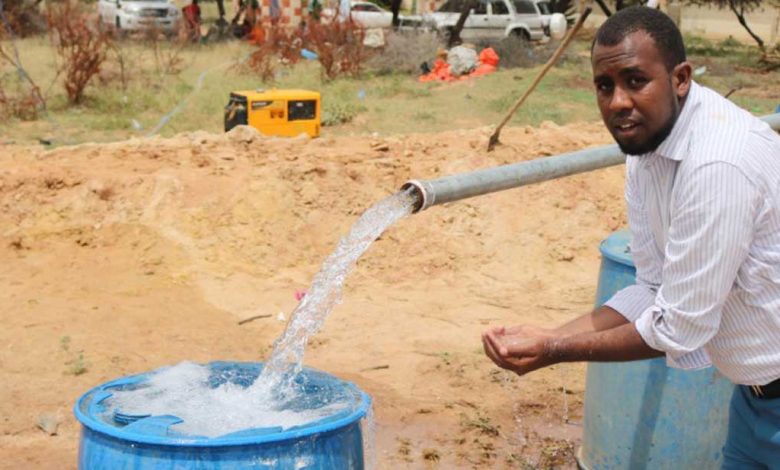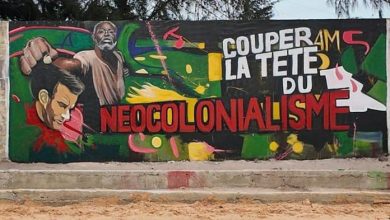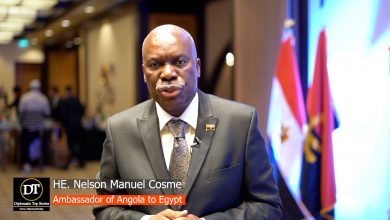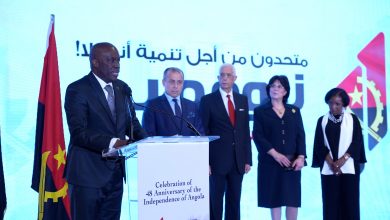Bank-funded water and sanitation project improves livelihoods in Somaliland | African Development Bank

Diplomat.Today
The African Development Bank
2023-04-06 00:00:00
——————————————-
On March 22, as the global community celebrated World Water Day, residents of a small town in Somaliland also had reason to celebrate.
With about 24,500 inhabitants, Arabsiyo is located about 35 km west of the capital Hargeisa. Previously, 75% of the city’s residents depended on unsafe water supplied by donkey carts and truckers who often draw from unprotected and poorly maintained water sources, such as shallow, hand-dug wells around seasonal riverbeds.
Only about 20% of the population had access to drinking water from a borehole through a domestic connection operated by Arabsiyo Water Agency (AWA), the public water company. The remaining 5% obtained their water at high cost from water kiosks.
According to AWA, the water volume was insufficient to meet the WHO recommended minimum per capita urban consumption of 35 liters per capita per day. It fell short of this recommendation by almost 67%.
During that period, 62-year-old Khadra Mohamed spent about a third of her daily income on drinking water. “I bought water four times a week from a private operator with a donkey cart, which traveled about four miles round trip for each supply. Still, this was not enough for my sanitation and hygiene needs,” says the mother of seven, a resident of Arabsiyo.
She recalls that her daughter traveled the same distance each time to call a donkey cart driver and lead them to their house to deliver water, and therefore regularly missed school.
This inability to meet the growing water needs of communities in Arabsiyo was widespread, especially in Somaliland’s informal settlements. But since 2022, the story has changed, thanks to the Water Infrastructure Development Program for Resilience in Somaliland (WIDPR), funded by the African Development Bank and implemented by the Ministry of Water Resources Development in partnership with CARE International.
The program, which has been implemented for six years (2016-2022) in several rural and peri-urban communities in Somaliland, has established a resilient and sustainable water and sanitation infrastructure in Somaliland.
It included the construction of an 83,000 cubic meter Haffir dam at Faraweyne, close to the Ethiopian border; construction of 5 earth dams, rehabilitation and construction of five strategic boreholes and 11 shallow wells. Another 18 shallow wells were built to serve as mini water supply facilities for the village. They are solar powered and serve rural and peri-urban communities. Some 23 public sanitary facilities were also built in schools, health centers and markets.
The project had a capacity building component consisting of the establishment and training of 27 community committees for water management and 23 community committees for sanitation and hygiene. These community-level management structures will ensure systematic and sustainable access to water supply and sanitation for the beneficiaries.
In addition, the program made available a borehole and maintenance facility to increase water production in Arabsiyo Town. This helped AWA improve the water supply through house connections and enabled the construction of more water kiosks.
Khadra’s family is one of many households that benefited from the new water supply system. Her daughter, who used to have to leave school to walk 6 km to fetch water for the household, now attends regular classes.
Khadra says, “Giving me access to tap water means a lot. My daughter is now fully back in school and the amount of money I spend on water has been significantly reduced. I can now save money for small trade to support my family.
For example, families like Khadra’s paid $7.5 per m2 for the project3 to private water sellers; now they pay only $1.5 per m3 through a water connection.
Khadra talks to a water seller on a donkey cart at her home in Arabsiyo
It is not only the residents of the city of Arabsiyo who have benefited from the WIDRP. The program also provided water to the internally displaced persons camp in the northwestern port city of Berbera and other new settlements, providing clean water to hundreds of displaced people.
Implemented as the Reinforcement Berbera Urban Water Supply Scheme (ABUWSS)the program increased the number of home connections from 1,200 to 6,750, serving an additional 38,800 people in the township and providing an additional 8,500 displaced people with access to affordable drinking water.
Fardusa Osman, 30, who fled the conflict in Ceel Afweyn in the northeastern Sanaag region to the Berbera camp with her three children and husband, can now boast an affordable, clean water supply. “Initially, we received limited amounts of water from a benefactor and spent about $2 to $3 per 200-gallon barrel delivered by water tankers, which was more than ten times the approved water rate of $1 per 1,000 gallons.” she says.
Fardusa adds: “Due to the high cost of water, what we could afford was not enough to meet basic hygiene and sanitation needs. I am happy and grateful to the African Development Bank and the government for providing water in the camp. I now get enough water from the water kiosk for drinking, cooking and cleaning, and it doesn’t cost me much.”
The completion of the ABUWSS initiative increased water production capacity by 2,400 m3 daily after the development of four new high-productivity boreholes. This was in addition to upgrading the existing transmission and distribution network with 10.5 km of pipeline and the construction of seven water kiosks, improving the supply of the targeted areas, including the camp.
Berbera Mayor HE Abdishakur Cidin praised the program and the partnership with the Bank, saying: “An urban water system that provides reliable water to the urban poor is essential to maintaining public health.”
The program contributed to the vision of the Ministry of Water Resource Development to become a water-secure country where every citizen has easy access to clean, adequate and affordable water, sanitation and hygiene.
——————————————-



